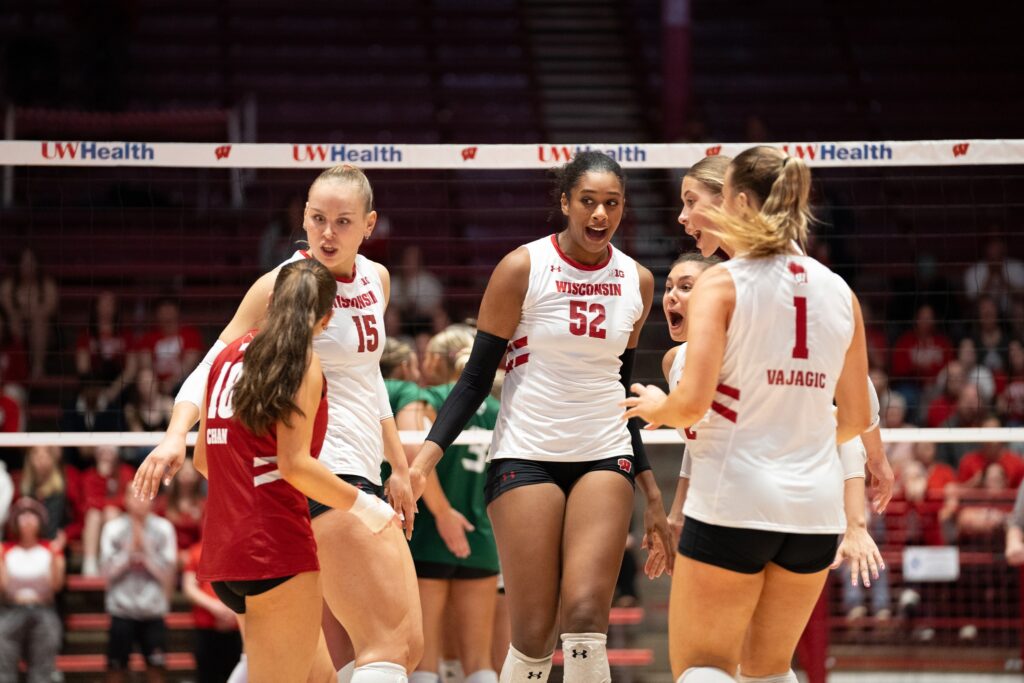Wisconsin Volleyball Team Leaked – What Really Happened & Why Everyone Is Still Talking About It

wisconsin volleyball team leaked
The “Wisconsin Volleyball Team leaked” topic became one of the most viral and controversial online search trends over the past year. It involved private locker room photos of the University of Wisconsin women’s volleyball team being leaked and circulated online without consent. This incident quickly became a major internet discussion — not because of the pictures themselves — but because of the bigger conversation about online privacy, digital safety, cybercrime, athlete protection and how fast illegal content spreads on social platforms.
As searches for “Wisconsin volleyball team leaked” still trend globally, it is important to look at this responsibly and understand what actually happened, why it matters, and what lessons the sports world + internet users can learn from this case.
Summary of the Incident
In 2022, members of the University of Wisconsin women’s volleyball team had private locker room photos illegally leaked. These files were never meant for public access. The team immediately reported the situation to the police and the University. The case was confirmed and investigated as a criminal breach of privacy.
This means anyone who downloads, shares or republishes these images is also committing a crime.
This topic gained worldwide search volume because the team was extremely popular, competitive and high-performing — making the scandal even more sensational in the media.
Why Is This Topic Still Trending?
- It sparked global conversation about consent and privacy in sports
- Search volume stayed high because the Wisconsin team continued to play at championship level
- People became more aware of cybersecurity issues for student athletes
- The case is referenced regularly in discussions about digital responsibility and online ethics
The Team’s Response
The Wisconsin volleyball team handled the situation professionally and with strength. They stayed focused on competition, continued winning, and received nationwide support from fans, universities, media, and other professional athletes.
Instead of letting the incident define them, they shifted attention back to:
- athletic performance
- teamwork
- NCAA achievements
- representing their university with excellence
This became a strong narrative itself — turning a violation of privacy into a story of resilience.
What Can We Learn From This Case?
This incident shows that privacy matters, even in a world where everything is shared online. Student athletes, influencers, and regular social media users should be aware of digital risks. Universities are now investing more in privacy policies, education, legal protection and technology to prevent similar issues.
This is also a reminder to searchers: consuming and spreading leaked content is not harmless entertainment — it causes emotional damage to real humans and is legally punishable.
Final Thoughts
The “Wisconsin Volleyball Team leaked” topic remains one of the strongest reminders that personal boundaries and consent must be respected online. As search interest continues, it is important for content creators, journalists, fans and the general public to address this topic maturely and ethically — focusing on awareness, protection and sports excellence, not on exploitation.
Q1: Why is everyone searching for the Wisconsin Volleyball Team leaked topic?
People are searching because this incident became one of the biggest privacy cases involving college athletes. It was not just a viral scandal, but a major awareness moment about digital security, personal data protection and online ethics.
Q2: Was the Wisconsin Volleyball Team leaked content real?
Yes, the University confirmed the materials were real, private and shared without permission. This is why it became a criminal investigation and why sharing the leaked content is illegal.
Q3: Can someone get in trouble for reposting Wisconsin Volleyball leak content?
Yes. Sharing, distributing, downloading or reposting leaked material of real individuals is a crime. Platforms, search engines and law enforcement treat this as exploitation and privacy violation.
Q4: Why did this case go so viral internationally?
The team was already well-known for their competitive success. When the privacy breach happened, social media platforms boosted the trend before moderation caught up, causing global attention.
Q5: How did the Wisconsin volleyball team respond after the leak?
They stayed focused on performance and continued competing at a high level. This made the team respected even more and they became an example of standing strong despite unfair violation.
Q6: What lesson should universities learn from this viral leak incident?
Universities must take athlete cybersecurity seriously – better training, cloud protection, device safety education, instant legal action and tighter internal privacy protocols.
Q7: Why is talking about this topic respectfully important?
Search trends attract curiosity, but these are real people who were harmed by this leak. Ethical reporting protects victims, avoids re-traumatization and discourages illegal content circulation.
Q8: What is the main message to young athletes from this case?
Be careful with digital content storage and personal sharing. Always protect passwords, cloud access and consider long-term risk of digital material being misused.
Q9: Does this incident impact how future sports media handles viral scandals?
Definitely. More journalists and platforms now encourage trust-based reporting, consent-first content, non-exploitative headlines and accountable online culture.
Q10: Can this topic still rank in SEO without being explicit?
Yes. Google actually ranks safer topical coverage better now. High quality, ethical, educational writing around the Wisconsin Volleyball Team leaked incident ranks more stable long-term because it avoids NSFW penalty filters.

